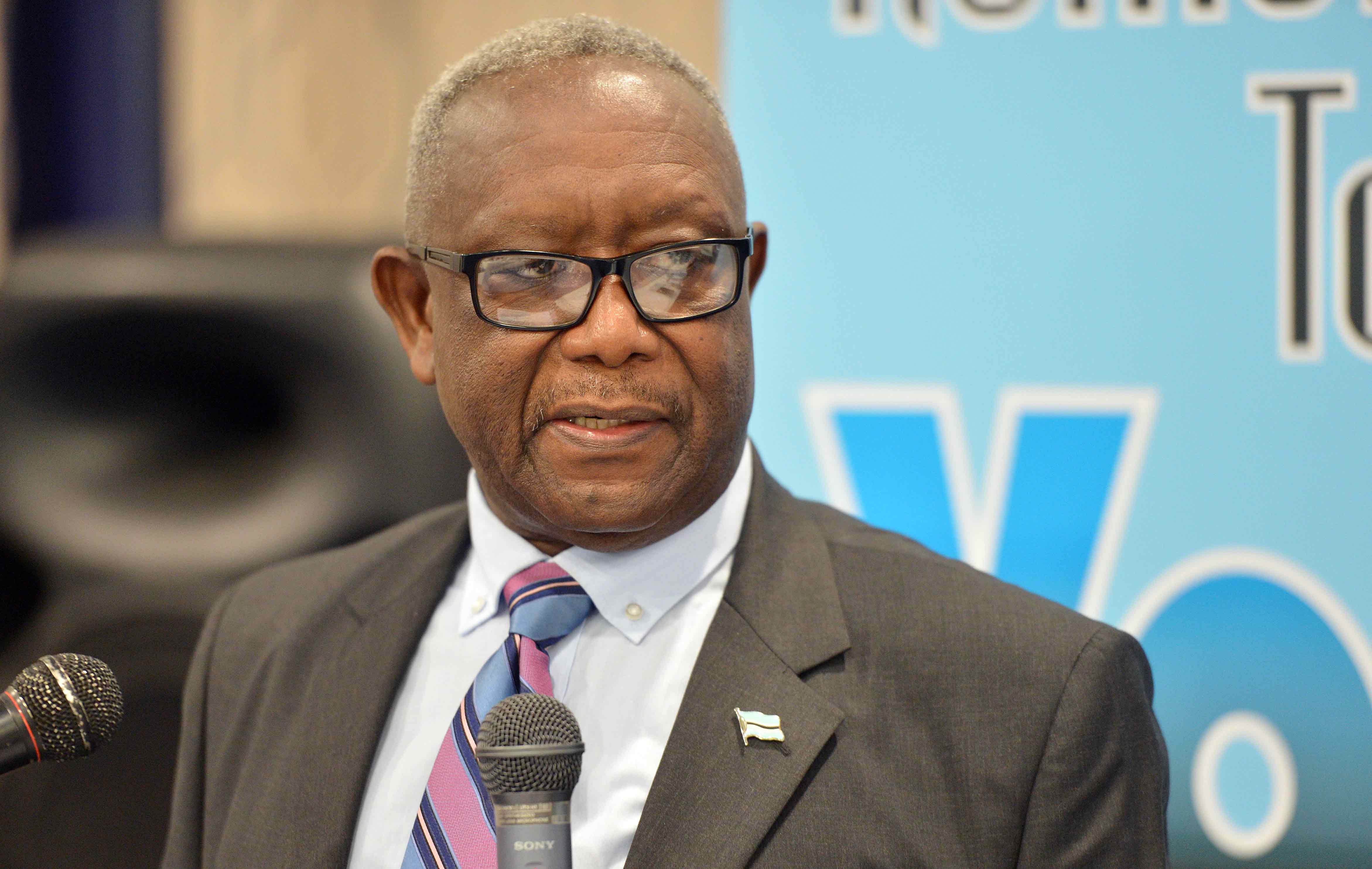- Seeletso’s EVM contract expires
- Seeletso has been on an FO salary scale for a project that never was
- IEC says it tapped into his experience for recent elections
TEFO PHEAGE
The former Secretary for the Independent Electoral Commission (IEC), Gabriel Seeletso, will soon leave the offices of the IEC following expiration of his contract for a project that never was.
Seeletso was hired in 2016 as a consultant for the controversial Electronic Voting Machines (EVM). IEC spokesman Osupile Maroba has confirmed expiration of Seeletso’s contract, saying this week was his last at work for the IEC.
While Seeletso is only now leaving, many of those he recruited to the controversial EVM assignment have long gone back to their bases after President Mokgwetsi Masisi repealed the law ushering in the unpopular contraptions.
Soon after he succeeded former president Ian Khama on 1st April last year, Masisi suspended EVM use for the 2019 general election and in his maiden State of the Nation Address, saying the piece of technology posed “serious threats” to Botswana’s peace, stability and security.
But Seeletso could not immediately leave because he was on a three-year contract. “He has been very instrumental in this year’s elections as we tapped into his experience and vast knowledge,” said Maroba. “You will recall that he is an elections expert, hence he was our point of reference.”
Seeletso, who retired from the civil service on 18 November 2016, has been on an FO salary scale. He declined to field questions about his experience with the EVM project that never saw the light of day or his countrywide tour to in an attempt to popularise the machines, saying he would first have to clear with the Executive Secretary of the IEC, Keireng Zuze.
Seeletso had the toughest assignment to impose on the nation machines that were met with distinct rejection right from the onset. In some instances when the voice of the people against the machine grew louder, Seeletso looked alone and abandoned as the ruling party washed its hands off the machines.
The IEC had a tough time trying to disassociate itself from the mayhem and bedlam that the unwanted contraptions had raised in their wake.
The countrywide public education campaign, through which IEC planned to address 490 ward meetings and 57 constituency meetings, was to cost P150 million.
Seeletso had said that Botswana intended to adopt the Namibian model after Molale invited the Namibian Attorney General to present to the cabinet. Namibia had bought their EVMs from Bharat Electronics Limited of India.

